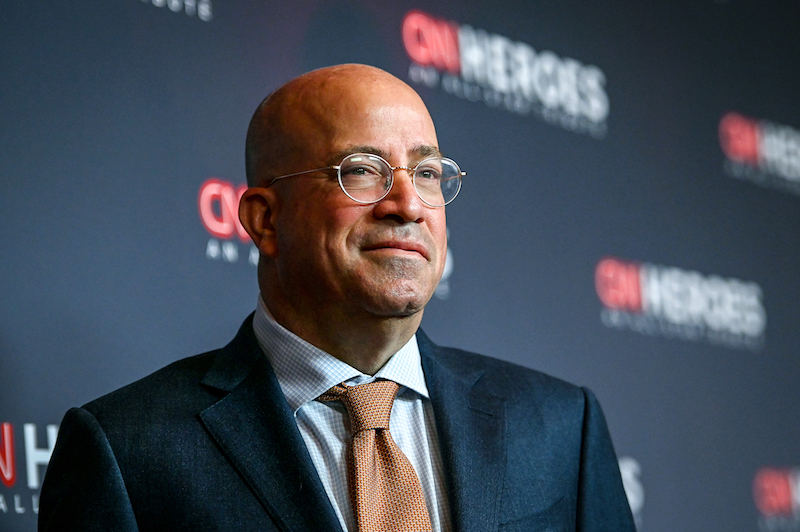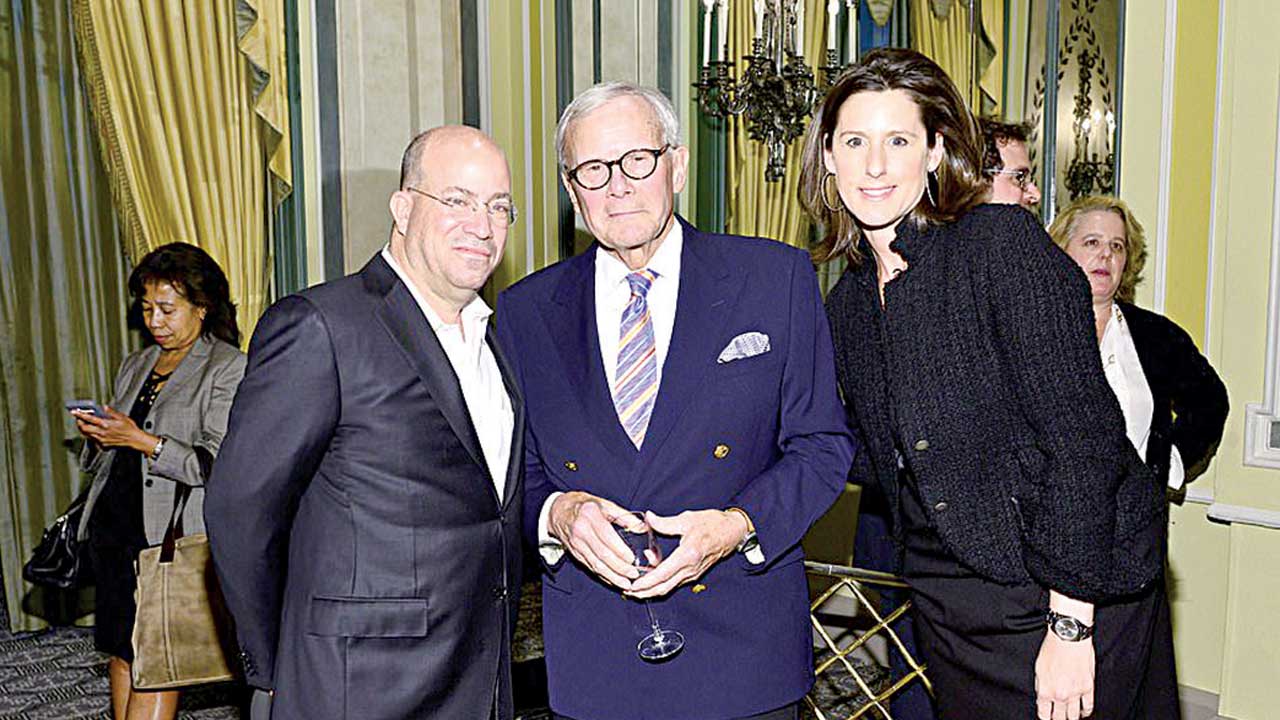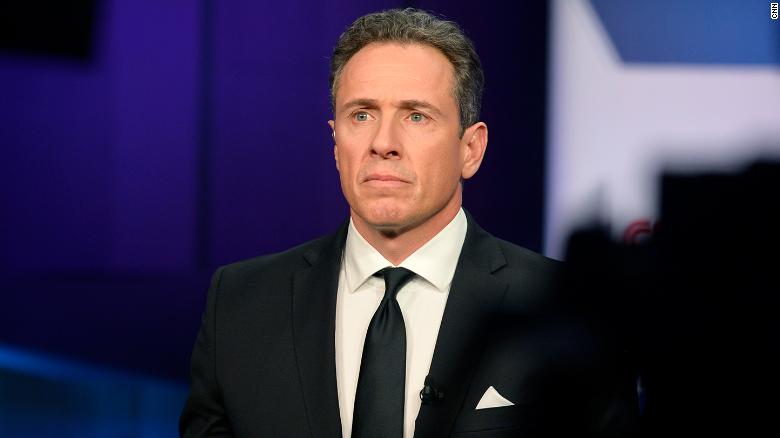
Jeff Zucker, Cable News Network’s (CNN) President has joined the growing list of CEOs to lose their position over a workplace relationship. The list include McDonald’s CEO, Steve Easterbrook.
One of the latest romances to rock the business world came in November 2019, when McDonald’s CEO Steve Easterbrook was ousted for having a consensual relationship with an employee.
McDonald’s policy forbids dating between employees with a direct or indirect reporting relationship.The firing shocked many in the business world.
Since he took the job in 2015, Easterbrook has been credited with almost doubling the company’s share price. He was behind its tech push, introducing self-order kiosks and investing in voice-activated drive-through technology. After his departure was announced, the value of McDonald’s shares fell by three percent.
Easterbrook was the fifth US CEO to lose his job over a consensual relationship within 18 months. Ever since sexual abuse allegations against Harvey Weinstein highlighted power imbalances in the workplace, many US companies are erring on the side of caution and adopting zero-tolerance policies regarding relationships between managers and junior staff. Among US companies with formal policies on consensual relationships, 78 percent now ban them outright if they are between a manager and an employee.
News of Zucker’s resignation sent shockwaves inside CNN and across the world.
His surprise announcement came less than two months after he fired prime time anchor, Chris Cuomo, for improperly advising his brother, then-New York Governor, Andrew Cuomo, about how to address sexual misconduct allegations.
According to WarnerMedia’s Standards of Business Conduct handbook, “employees must not hire or supervise (directly or indirectly) someone with whom they have a personal relationship, and if you are in a position to influence the employment, advancement or hiring of someone with whom you have a personal relationship or a business they are associated with or have an interest in, you must inform the Human Resource department in advance of taking any action.
“As part of the investigation into Cuomo’s tenure at CNN, I was asked about a consensual relationship with my closest colleague, someone I have worked with for more than 20 years,” Zucker told employees in a memo. “I acknowledged the relationship evolved in recent years. I was required to disclose it when it began but I didn’t. I was wrong. As a result, I am resigning today.”
Though Zucker did not name his colleague, his relationship with Allison Gollust, was already known to everybody in the establishment. Gollust is, however, remaining at CNN.
Zucker and Gollust began working together at NBC in 1998. They rose through the ranks at the network together, and when Zucker joined CNN, Gollust was among his first hires. Just before coming to CNN, Gollust had worked briefly as communications director for Andrew Cuomo. She is currently executive vice president and chief marketing officer at CNN.
In her reaction, Gollust said, “Jeff and I have been close friends and professional partners for over 20 years. Recently, our relationship changed during COVID-19 pandemic. I regret that we didn’t disclose it at the right time. I’m incredibly proud of my time at CNN and look forward to continuing the great work we do everyday.”
Zucker and Gollust both divorced their partners years ago. Rumors that their close working relationship had morphed into a romantic one have long been the subject of speculation and have occasionally surfaced in gossip columns. The journalist Katie Couric, who once worked closely with Zucker, but later had a falling-out with him, even hinted at it in her tell-all memoir released last year.

CNN employees had no idea what was coming before Zucker’s email landed in their inboxes shortly after 11 a.m. ET. He spoke with some of CNN’s top executives on Wednesday morning, shortly before he announced his departure. He indicated that he would have liked to stay on for a short period, to help with a smooth transition, but WarnerMedia wanted otherwise.
According to two people involved in the matter, Zucker was facing termination if he did not resign.
Underscoring just how unexpected the news was, some of Zucker’s direct reports were out of the office and traveling on Wednesday.
Kilar, who flew to New York to oversee the transition, stepped in to run the Wednesday meeting Zucker usually holds with his top executive team.
Kilar also plans to meet with staffers in Washington and Atlanta, a source said.
WarnerMedia is in the process of merging with Discovery. Many media observers thought Zucker was in line for a promotion once that deal is complete. That is not the only reason this is a pivotal time for the network: CNN plans to launch an ambitious streaming service, CNN+, in the spring, and it also needs to roll out a new 9:00p.m. programme to replace Cuomo.
In an email to staffers on Wednesday afternoon, Jason Kilar, the CEO of CNN parent WarnerMedia, said three senior executives will lead CNN until the merger with Discovery is complete: Michael Bass, Amy Entelis, and Ken Jautz.
“I have full confidence that Michael, Amy and Ken, as interim heads for News, will provide the leadership this organization needs during this time of transition,” Kilar said, adding that employees will “hear more” from the three executives “in the coming days.”
Zucker, with Gollust on his leadership team, took over CNN in 2013, at a time when industry observers said the network was facing an identity crisis.
Zucker revamped the network’s programming. A veteran of NBC, where he climbed from a producer on the “Today” show to president of the entire network, Zucker brought an eye for news and talent. He also brought a hands-on management style and gained the trust and respect of talent and staffers throughout the network.
In recent years, Zucker led the network as it faced sustained attacks from former President Trump and his supporters.
Under Zucker, CNN adopted a “Facts First” slogan and approach to the news and was unrelenting in calling out Trump for his lies. The approach turned Zucker into a villain for Trump, with the then-president lashing out at him during his years in office. Zucker also became a regular boogeyman in right-wing media, with Fox hosts viciously attacking him in prime time.
It was all evidence of Zucker’s larger-than-life status in the news business and influence over the broader discourse in American politics.
Zucker defended Cuomo for the better part of a year while critics said the anchorman should have been benched or worse for what was then publicly known about how he’d advised his brother. Zucker eventually fired Cuomo in early December, after further revelations about how the brothers worked together to combat the allegations against Andrew.
Before taking action, CNN retained Cravath, a white-shoe law firm, to review the Cuomo matter.
When Cuomo was fired, CNN said that Cravath’s findings alone were “cause to terminate.” But the network also said it had received an allegation of sexual misconduct from a “former junior colleague” against Chris Cuomo.
Though Cuomo denied the allegation, a CNN spokesperson said at the time, “When new allegations came to us this week, we took them seriously, and saw no reason to delay taking immediate action.”

Cravath has continued its probe, according to sources familiar with the matter. One complicating factor is Cuomo’s ongoing legal battle with CNN, which is apparently why Zucker was questioned about his relationship with Gollust, one of the sources said.
It’s difficult to guarantee consent when one person is paying the other’s salary
But the same cannot be said of Europe, where a worker’s right to date who they want – and keep it private – is respected under Article 8 of the European Convention on Human Rights. Many countries’ labour laws also enshrine this right. For example, when the German subsidiary of Walmart tried to ban flirting between coworkers in 2005, a court in Düsseldorf ruled that it was acting outside of the law.
Expectedly, media outlets in Western Europe railed against Easterbrook’s firing. The French newspaper Le Monde criticised McDonald’s for “Anglo-Saxon puritanism” that was “far from French custom”. But attitudes are changing: as companies in the US crack down on sexual harassment, it is becoming obvious that workplace romances are far from clear-cut. It’s difficult to guarantee consent when one person is paying the other’s salary.
Something often flagged is the risk of favouritism. Managers are expected to keep their personal feelings out of the equation when reviewing an employee’s performance or discussing their salary. This would, of course, be difficult if they were dating said employee. Even if they succeeded in treating their romantic partner like any other worker, the more junior person could still face consequences. One study asked participants to look at fake profiles of workers at a law firm and determine who should be put forward for promotion and who shouldn’t. Consistently, the participants decided that any candidate dating a senior member of staff should be denied promotion. Far from giving someone a leg up on the corporate ladder, a relationship with a manager could very well do the opposite.
This dynamic also makes breaking up more difficult. Vanessa Bohns, Associate Professor of Organisational Behaviour at Cornell University, told European CEO: “By ending the relationship, you not only risk offending a relationship partner, but also the person who conducts your performance reviews and makes decisions about your salary and promotions.” If someone has to leave their role because of a break up, it’s likely to be the junior employee, who represents less value to the company. This outcome is far from ideal. Gautier added: “Transferring someone to another department or company is almost like you’re punishing that person.”
But this is hardly new information, and it doesn’t explain the recent spike in CEO firings. Instead, we may attribute that to the growing conversation about consent in the workplace. The sexual abuse allegations against Harvey Weinstein show that top executives can all too easily exploit their positions in order to abuse junior staff – most often, young women. At the same time, the Weinstein case demonstrates how difficult it can be for junior staff to reject the advances of someone with financial leverage over them.
But in an interview with The Guardian, Veteran journalist and founding Director of Newswatch Magazine, Yakubu Mohammed, said, “it is a question of morality and it is culture bound. I am not familiar with such cases in Nigeria media for me to draw example from but it is not far fetched. If it is a question of professional misconduct or professional misjudgment, that is different. If someone has been accused and suppressed, then it becomes an issue. Many killings are happening everyday and nobody is resigning.”
Similarly, Special Adviser, Media Affairs to former Edo State Governor,, Tony Iyare, said Zucker’s resignation, no doubt, threw up lots of issues—ethical, moral, non-disclosure of status of relationship.
According to him, “I do not think there is any barrier how one incubates his or her relationship. As long as it does not violate the company’s regulations, there is really no problem about the relationship between Zucker and CNNs Executive Vice President, AllisonGollust being taken to a different level. What is unethical is non- disclosure of the status of the relationship since it had implications for how staff and others will perceive the company’s decision and actions. Why Zucker and Mrs. Gollust kept their new relationship under wraps without disclosing it to the company may not have been intended but it gave the impression that they had something to hide.”
When Clinton’s affair with Monica Lewinsky came to light in 1998, consent wasn’t an issue the media explored. Instead, she was painted as a “ditsy, predatory White House intern”. Revisited through a post-#MeToo lens, it’s hard not to see an abusive edge to the relationship between a 22-year-old intern and her 49-year-old boss, who was also one of the most powerful people in the world.
On these grounds, some argue that a romantic relationship between a manager and their direct report is inherently an abuse of power. But this stance is problematic too. Gautier points out that such assumptions can fuel an infantilising portrayal of women. “There’s this stereotypical view that the junior female in that relationship is considered weak, vulnerable,” said Gautier. “But if they’re two consenting adults, where is the vulnerability there? We’re just making the assumption that the woman at the junior end can’t take care of herself.”
That said, a laissez-faire approach to sexual politics can help harassers. There have been times when France’s notoriously relaxed attitude to sex has allowed it to turn a blind eye to the transgressions of top executives. When Dominique Strauss-Kahn, Managing Director of the IMF, was accused of sexually harassing a subordinate, the French media mostly laughed it off. French newspaper Le Journal du Dimanche dubbed him le grand séducteur (the great seducer). But it’s hard to see what distinguishes Strauss-Kahn’s ‘womanising’ from the behaviour of sexual predators like Weinstein.
Easterbrook’s firing is part of a wider movement towards holding top executives to account. PricewaterhouseCoopers found in its annual CEO Success study that more CEOs now lose their jobs due to ethical lapses than poor financial performance. Boards are making these decisions to set an example at the top and prevent harassment in the office. But it’s a delicate balance to strike; over-regulation of gender relations at work can have the adverse effect of undermining #MeToo’s broader vision.
The #MeToo movement radically changed attitudes towards gender relations in the workforce; adjusting was never going to be an easy ride.
One of the arguments often made against #MeToo is that harassment is hard to define. In a Bloomberg report, one Wall Street executive said men were now “walking on eggshells” around women because they no longer knew what behaviour was acceptable and what wasn’t.
The importance of culture shouldn’t be underestimated: a healthy office environment could be key to determining whether a workplace romance constitutes, or could evolve into, an abuse of power. “If you are in an environment that is toxic – where the culture is unhealthily competitive, top-down driven, or where people do not trust one another – the relationship itself may be problematic,” said Gautier.
Regardless of what policies a company adopts, it’s almost inevitable that romance will blossom in an organisation. While these relationships can take a turn for the worse, banning them outright is unlikely to be the most effective way of managing negative outcomes. More likely, it will push the relationship underground. “From the organisational side of things, eventually the relationship is found out and coworkers may feel betrayed and lied to,” said Baker. “For the couple, there is research suggesting that secret relationships are actually less satisfying – it is a drain to always be hiding your feelings.”
Policing office romances was the knee-jerk reaction to the many sexual harassment cases that came to light as a result of the #MeToo movement, but it is not a solution. In the case of Easterbrook, an uncomfortable context may have pushed the company to make a strong statement about workplace relationships. In the space of about three years, employees have filed more than 50 sexual harassment complaints against McDonald’s; class action suits accused the company of a “toxic work culture”.
According to Ayodele Longe, Programme Officer, Media Rights Agenda, “the lesson I see is the need to have and maintain values, character and reputation. What happened to him can happen to anyone but having been found out, he took the honourable option of resigning. He was supposed to disclose that he was having an affair with a staff of CNN but he failed to and once he was found out, he resigned honourably. Some persons will prefer to drag the matter believing that they should not easily accept ‘defeat’. His resignation save everyone a lot of stress and serves as an example to others in every business worldwide that we must respect organisational values, rules and ethics and when we fall short, the honourable route.”






